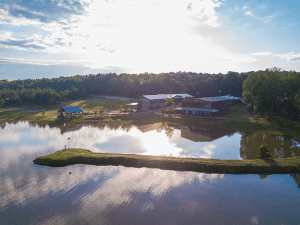Finding Recovery In Nature
“…I went to the woods because I wished to live deliberately, to front only the essential facts of life, and see if I could not learn what it had to teach, and not, when I came to die, discover that I had not lived. I did not wish to live what was not life, living is so dear…” – Henry David Thoreau
The Power of Nature
Pick up an poetry book – Whitman, Emerson, Thoreau to name a few – and you will find yourself instantly transported into a world of blue sky observations and rolling meadows of vibrant life.
One of the most powerful tools in recovery sits just outside our doors. From the urban jungles of Central Park, to the waters of the Great Lakes, from the cool air of the Rocky and Appalachian Mountains to the transcendent feeling of an ocean breeze – we find ourselves surrounded on all sides by nature. Powerful, beautiful, yet mostly underutilized, nature has the ability to captivate us and remind us there is something much bigger than our lives and this exact moment we are in. Nature romances it’s way into the heart and mind of humanity, even by spending mere moments outdoors in fresh air. It’s no wonder that the enlightened power of nature should be part of the cure for the darkness of addiction.
While the role of the great outdoors is often overlooked in treatment, if you are partnering with a facility focused on healing the whole person, they affirm and acknowledge that a connection to nature is key to restorative healing. Facilities rooted in holistic, whole person healing – mind, body, heart and spirit – know that a greater connection has to be made to shift behaviors on a deeper level. You cannot just tell people they can live again, they have to believe they are empowered to do just that – that they have been created for more.
Here are 3 ways that Nature can help you on your road to recovery:
1: Renewal – Get Out On Purpose!
Build it into your therapy plans with your treatment team. According to the EAGALA site, experiential therapies, such as equine therapy, “embrace the science that humans learn best by doing. The model prescribes a hands-on approach where clients are given the space to project and analyze their situations, make connections, and find their own solutions. Since the solutions are personally experienced in conjunction with intellectual understanding, they tend to be deeper, more profound, and longer lasting.”
Through blending nature experiences in your treatment, you will be empowered to focus on the outdoor activities, beginning to identify emotions associated with success, disappointment, responsibility, and self-esteem. Under the guidance of a trained experiential therapist, one can begin to release and explore negative feelings of anger, hurt, or shame as they relate to past trauma that may be buried emotionally and hard to discuss. Clients can breathe deeply with a change of environment – breaths they may not have been fully able to take for some time due to the weight of their substance-oriented depression and anxiety.
2: Spiritual – Connect on a Higher Level.
Integrating nature into recovery allows us the opportunity to see in very real ways how life can be restored. Reflection on a higher power reminds us that we are not alone, that humanity exists for a purpose. We can find connection to the positive again. Consider a forest after a fire – it still continues to grow. The fire, in a sense, acts as a refinement. It helps the patient reconnect to positive feelings such as love, forgiveness, and calm in the present, changing their perception of reality. The care of animals reminds us that we are able to care for others.
The stroll through a 12 step garden allows us to take in small reminders of purpose. The garbage pick up community service project empowers us to recognize our impact in the world, no matter the size of our footprint. Integrating nature to your treatment reminds the client there is a belief possible that you can’t find anywhere else – and certainly not in the destructive partners of a needle or bottle. Cultivating a healthy spiritual life through Nature can give purpose for living, helping individuals develop coping mechanisms to face their own personal trauma and find safe places to transition through their pain.
3: Physical – Remember What You Are Capable Of!

The body is a mystery. Once it finds itself unchained from the weight of substances and unhealthy mental coping mechanisms, Nature quickly reminds us that we are ALIVE! We are meant to run and move, swim and dance, hike and climb. The more a person begins to use their body again in recovery, the more their mind creates healthy endorphins. Consider a mountain climb or a ropes course. Your body meets your soul, strength for strength, and at the end, the client experiences the “natural high” – the one they were physically capable of all along.
Nature’s greatest ability is that it gives us an honest view of who we are – our gifts, talents, weaknesses, flaws and our true potential are all made clear in each experience. In the example of nature, we can embrace who we are and grasp the vision of who we may yet be. Just like in hiking a trail – the best views often come after the hardest climb.